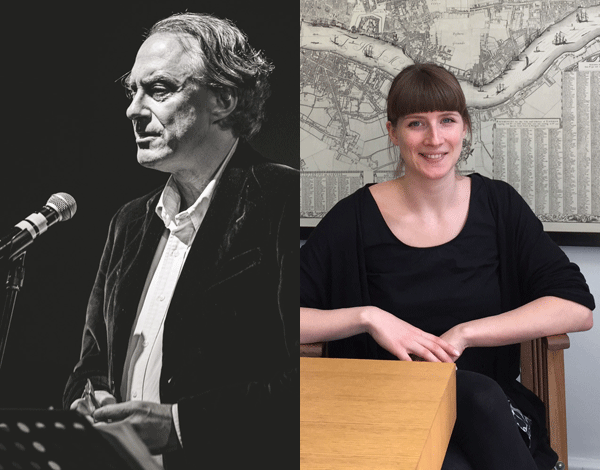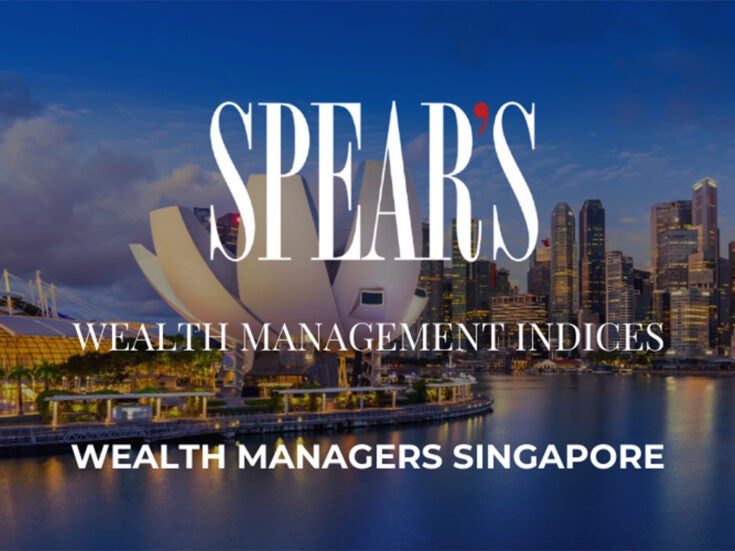
On Jeffrey D Montgomery’s serendipitous gift to to a charity that inspires prisoners through music.

THE GIVER: Jeffrey D Montgomery, founder of private equity firm GMT Communications & trustee of Finding Rhythms
Brains trust
People always try to find what it is that they are most passionate about, and mine has been neuroscience. I am involved in various charitable projects, all of which revolve around the discipline of neuroscience and its practical application in society.
These organisations aim to understand the human brain and how it affects our emotions, how it can relieve stress and anxiety, creating a better emotional environment. A better grasp of the inner workings of the brain helps us understand and appreciate how we function as human beings.
Music, from a neuroscience point of view, has a psychological impact — it shifts one’s state of mind, relieves stress, changes one’s point of view, makes one feel better and, sometimes, worse. Music for me is quite compelling, and I have always been keen to see the impact it can have on other people.
A force for good
In the case of Finding Rhythms, I believe music has power to help transform prisoners into more satisfied and contented individuals, which will improve the rate of reoffending. This is the principle behind Finding Rhythms.
I first heard about the organisation from its founders, Robin Harris and Emily Vermont. It was serendipitous. I happened to run into Robin and later into Emily when my wife Valerie was at a live music theatre event in which Robin was involved. We hired him to perform at our annual garden party, became friends, and a few years later I joined the board of Finding Rhythms.
Connections
The concept is to help prisoners develop a higher level of self-esteem and a greater sense of enjoyment collaborating with others — in this case in the real-time process of creating original music and lyrics. It was a very creative idea, and I was naturally intrigued by how they wanted to help individuals who have experienced a challenging environment realise their natural connection to other human beings, and understand themselves better.
It is a product of modern technology — low-cost, real-time studio-quality music engineering was not possible twenty years ago. Now, the members of the group, guided by the Finding Rhythms team, are able to create and structure a song, layer additional music and vocals around it… all on a real-time basis… no matter what the contribution —percussion, guitar, lyrics etc. And the end result can be quite compelling; a number of noted music producers are considering some of the work.
The right people
A challenge in philanthropy is finding the organisational structure that is appropriate for what your objectives are. This includes having the right people to realise the objectives and finding the funding for it. It was therefore satisfying for me to help Robin and Emily create that organisation, with their objectives, vision, and the philosophical approach in mind. It is all about organising and executing the plan, and doing it well.
I am pleased that the project is in very good hands. It is a pleasure to work with such a wonderful group of people with a great objective in mind, and a lot has been accomplished in an incredibly short time. They are one of the strongest teams in philanthropic organisations that I’ve come across.

THE GIFT: Emily Vermont, co-founder, Finding Rhythms
Early influence
Since I was thirteen, I knew I wanted to work in prisons in a creative fashion. My mum used to work in a young offenders’ institution, and at that formative age it struck me what a difference you can make to people’s lives just by showing a bit of care — that’s what I wanted to do.
I started volunteering at HMP High Down and shortly afterwards I was introduced to Robin Harris, who had recorded the album Scrubs Sessions at Wormwood Scrubs. The project was a roaring success, with great reviews from the Guardian and Times. He gave me a copy, I listened, and I was blown away. I thought to myself, “If they could do this on a small budget, why not do it again?” That’s where the idea for Finding Rhythms was born.
Appealing outlet
There are so many prisoners in the UK who have had a negative experience with formal education. They’re not interested in signing up for training or literacy, but music is most often the outlet they warm to.
It’s profoundly moving to see what could seem like scary characters turning into individuals who have completely calmed down and are smiling and giving hugs by the end of the course. My most memorable experience is seeing one antisocial and violent young inmate with a serious self-harm problem transform into a different person — open, chatty and involved with the music. Six months after the course, he had not self-harmed again and had no adjudication of violent behaviour in that time.

Productive area
We can produce an album of up to fourteen broadcast-quality tracks in six days through software called Ableton Live. We bring studio-quality equipment into rooms in the back end of a prison and work as one would in a studio, recording everything separately — drums, bass, rhythm guitar, vocals — which means we can edit later.
It’s exciting when it’s happening right in front of you. If participants want to go off and work on their lyrical ideas, they can go into a separate room where they can hear the track being created in their headphones, so they can adapt their ideas to it in real time. The post-production process goes on outside the workshops — this way we concentrate every moment that we’ve got in prison on the recording process. By structuring our work in this way we have a job for everyone.
While many are talented and are keen to ‘make it’ in the music industry, we sometimes have participants who aren’t musical at all but act as warm and motivating forces in the group. The courses have been described by prisoners as hard work and intensive, but always hugely rewarding.
We work with a project leader, an engineer and a guest musician — always industry professionals — in every session. Working with musicians who have been touring with people like Paloma Faith, Amy Winehouse and Dire Straits garners admiration, respect and commitment from the participants. It’s a professional environment where our team work alongside participants like colleagues, rather than in a teacher-pupil relationship. It’s essentially work experience, which culminates in a BTEC certificated in employability skills.

Changes in expression
I believe in prisoners’ potential to change, and our participants do appreciate the opportunity to be seen as normal people, not big, bad criminals. They are grateful that we distribute the CDs to their families and to the public, who are moved by the heartfelt messages in the songs. The lyrics speak volumes, about heartbreak, anger, inequality, love and sometimes promises to their children.
I feel that so much of philanthropy is the ability to network. It’s not just about one person giving their own cash — introducing us to an address book of people can go even further than that. As a founding trustee Jeff has been a passionate advocate for what we do, and he’s been excellent at both.








